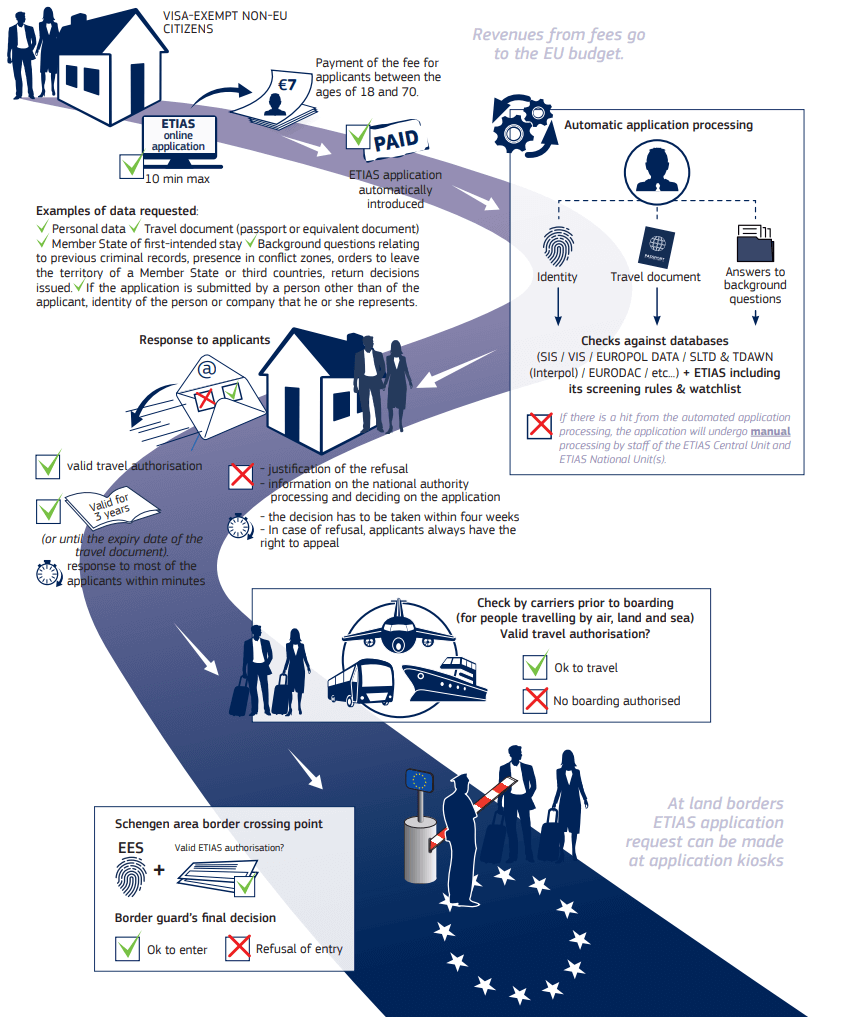Citizens from the Western Balkans will be required to comply with new European Union digital border systems — the Entry/Exit System (EES) and the European Travel Information and Authorisation System (ETIAS) — beginning in 2025 and 2026, as the EU tightens control over short-term visa-free travel.

Under current rules, nationals of Albania, Bosnia and Herzegovina, Kosovo, Montenegro, North Macedonia and Serbia can enter the Schengen Zone without a visa for up to 90 days in any 180-day period. While visa-free travel remains unchanged, new digital checks will soon be mandatory.
The EES, which replaces manual passport stamping with biometric registration, is now set to begin in October 2025, the European Commission said. The system will record travellers’ fingerprints and facial images upon entry and exit at the EU’s external borders. The goal is to crack down on overstays and improve border security.
ETIAS, meanwhile, is scheduled to launch in late 2026. Once operational, all visa-exempt travellers, including those from the Western Balkans, will need to apply online for pre-travel authorisation before entering the Schengen Area. The authorisation, valid for up to three years, will cost €7 and involve a brief security screening.
“Travellers from the Western Balkans should be aware that while no visa will be required, an ETIAS travel authorisation will soon be mandatory,” an EU official said, adding that more detailed guidance will be issued closer to the launch.
No Action Needed Yet

Authorities stress that ETIAS is not yet operational and no applications are being accepted at this stage. A specific launch date will be announced several months in advance. The only official platform will be hosted at europa.eu/etias.
The EU also warned of unofficial websites falsely offering ETIAS applications. “Only use trusted sources,” the Commission said, cautioning that fraudulent intermediaries may misuse personal data and overcharge applicants.
A valid ETIAS will allow multiple short stays of up to 90 days within a 180-day period, but it does not guarantee automatic entry. Border guards will still verify travel documents and entry conditions at arrival points.
Regional Impact
The six Western Balkan countries are not EU members but maintain close political and economic ties with the bloc and aspire to eventual membership. ETIAS and EES form part of the broader EU push for enhanced border control, affecting millions of travellers from neighbouring regions.
Despite delays to implementation — both systems were initially slated for launch by 2022 — EU officials say they remain committed to rolling them out in phases to ensure readiness across all 29 participating countries.



